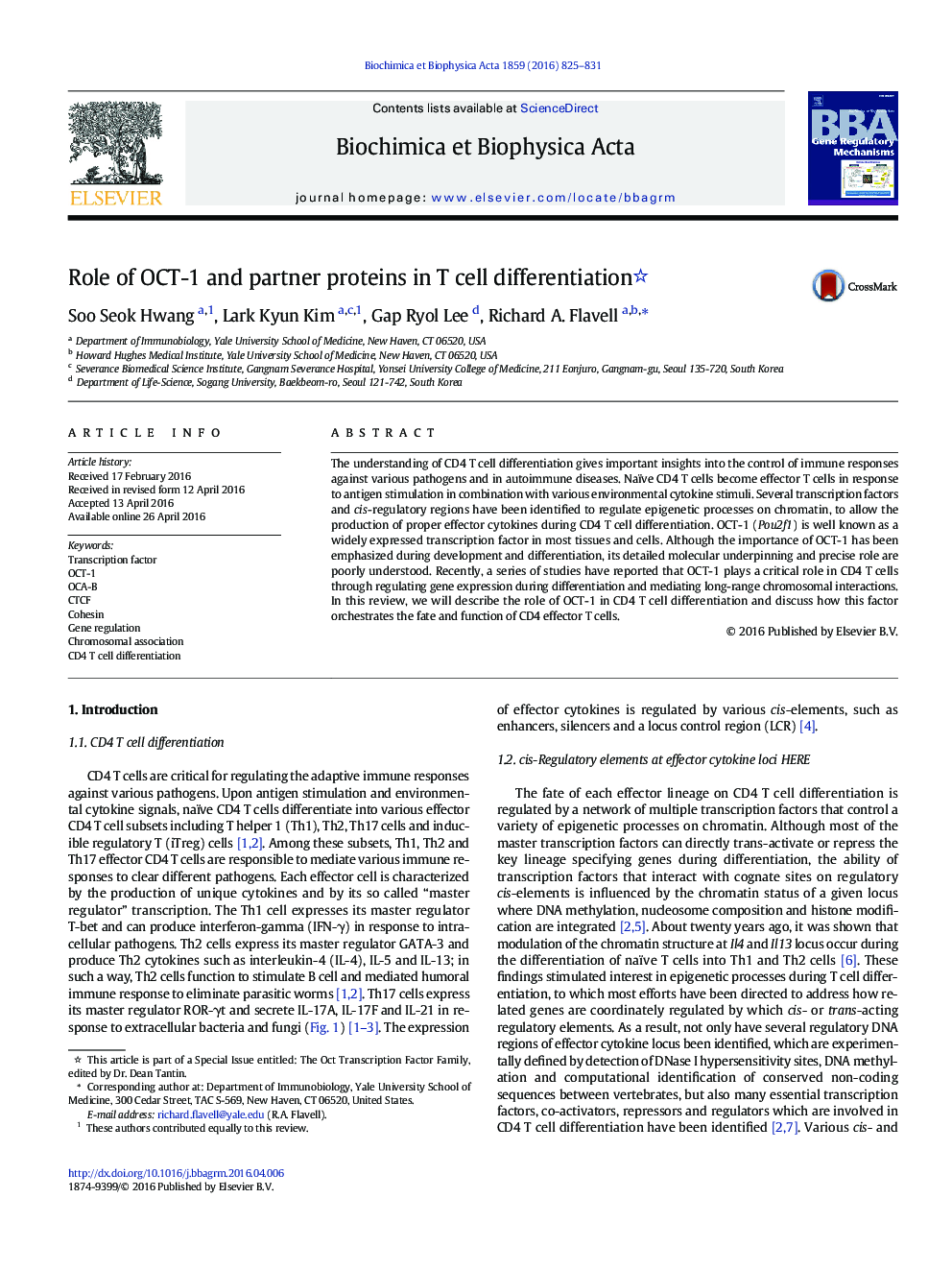| Article ID | Journal | Published Year | Pages | File Type |
|---|---|---|---|---|
| 1946328 | Biochimica et Biophysica Acta (BBA) - Gene Regulatory Mechanisms | 2016 | 7 Pages |
•OCT-1 and its associating partners collaborate to regulate epigenetic controls for T cell specific gene expressions.•OCT-1 mediates long range chromosomal interactions to govern the timing of cytokine expression in CD4 T cells.•OCT-1 has a dual function in T cells by orchestrating naïve T cell fate into effector T cell lineages or by stabilizing effector lineage commitment.
The understanding of CD4 T cell differentiation gives important insights into the control of immune responses against various pathogens and in autoimmune diseases. Naïve CD4 T cells become effector T cells in response to antigen stimulation in combination with various environmental cytokine stimuli. Several transcription factors and cis-regulatory regions have been identified to regulate epigenetic processes on chromatin, to allow the production of proper effector cytokines during CD4 T cell differentiation. OCT-1 (Pou2f1) is well known as a widely expressed transcription factor in most tissues and cells. Although the importance of OCT-1 has been emphasized during development and differentiation, its detailed molecular underpinning and precise role are poorly understood. Recently, a series of studies have reported that OCT-1 plays a critical role in CD4 T cells through regulating gene expression during differentiation and mediating long-range chromosomal interactions. In this review, we will describe the role of OCT-1 in CD4 T cell differentiation and discuss how this factor orchestrates the fate and function of CD4 effector T cells.
